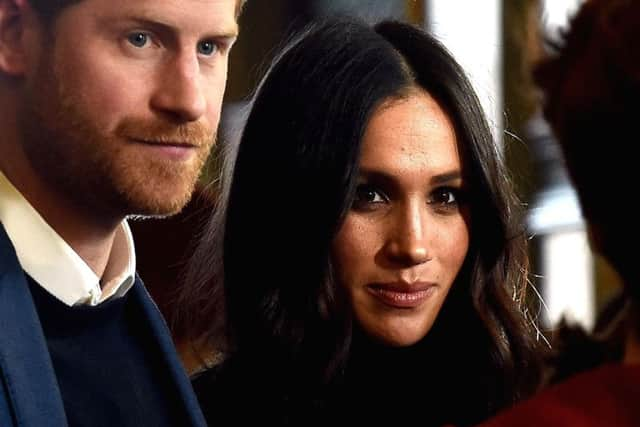Meghan Markle a '˜direct descendant' of Robert the Bruce
A new biography of American actress Meghan Markle, who is shortly due to become a member of the British Royal Family, found it was possible to trace a direct line through 25 generations to Robert the Bruce.
Markle will marry Harry at a ceremony in Windsor Castle on May 19.
Advertisement
Hide AdThe link to Bruce, who famously led a Scots army to victory against the English at the battle of Bannockburn, was revealed by royal biographer Andrew Morton .


The writer, best known for his book on Princess Diana , is promoting his latest work Meghan, A Hollywood Princess.
“It is possible to trace a direct line through 25 generations to Robert I of Scotland, perhaps the most colourful of all Scottish kings,” Morton said, in a serialisation published in The Sun.
“It is the lineage of Meghan’s gran that can be traced directly to the Scottish royals and more. Through her ancestor Roger Shaw, Meghan’s trickle of blue blood was transported to America.
“The son of a wine merchant in the City of London, Shaw sailed from Plymouth to Massachusetts around 1637. Through Shaw’s family, who originated from Yorkshire, we find the link to royalty. It was the marriage in 1490 of James Shaw to Christina Bruce, the daughter of Sir David Bruce, 6th Baron of Clackmannan, a direct descendant of Robert the Bruce, that sealed the royal connection.”


Bruce seized the Scottish crown in 1307 at a time when much of the country was under English occupation. His military victories at Bannockburn and beyond made him a national hero before his death in 1329.